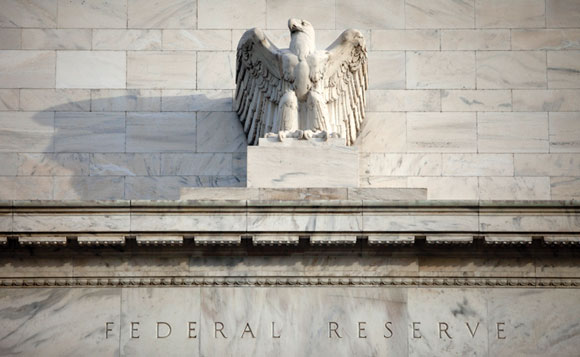Plosser sees central bank raising interest on fed funds before mid-2013; 'inappropriate policy at inappropriate time'
Charles Plosser, president of the Federal Reserve Bank of Philadelphia, said the Fed will probably need to raise interest rates before mid-2013 and that policy makers should have waited to see how the economy performed before pledging to hold rates at record lows for two years.
“It was inappropriate policy at an inappropriate time,” Plosser, 62, said today in a radio interview on “Bloomberg Surveillance” with Tom Keene and Ken Prewitt. Plosser spoke in his first interview since he dissented from a Fed decision on Aug. 9 to step up stimulus for an economic recovery that's “considerably slower” than anticipated.
Plosser said that it wasn't clear that the economy needed additional stimulus, especially given rising inflation and a decline in the unemployment rate since November to 9.1 percent.
Plosser, Richard Fisher of Dallas and Narayana Kocherlakota of Minneapolis opposed the commitment to hold the Fed's benchmark interest rate at a record low near zero until at least mid-2013, saying they preferred to maintain a low-rate pledge for an unspecified “extended period.” The last time three policy makers dissented was in November 1992.
“We're reacting too quickly here,” he said. “A little patience might be a good idea.” He said he wanted to wait until September to see whether the economic rebound anticipated in the second half of the year materialized.
Downbeat Description
The regional Fed president also said he objected to the Fed's downbeat description of the economy in the Aug. 9 statement, calling it “excessively negative.”
The Standard & Poor's 500 stock index rose 1 percent to 1,205.29 at 10:11 a.m. in New York, while yields on 10-year Treasuries rose to 2.24 percent from 2.22 percent yesterday.
The Fed didn't commit to hold rates low until mid-2013 in response to a global stock market rout in the days leading up to the Fed's Aug. 9 meeting, Plosser said. Still, he said he is concerned that investors may interpret the decision as a reaction to equities.
The central bank shouldn't be viewed as a lifeline for the economy when Congress and the White House can't agree on providing more fiscal stimulus, Plosser said.
It's “a big mistake for policy makers inside the Fed to believe if fiscal policy is hamstrung that the Fed has to act,” he said. “That is not a good reason to act.”
Stronger Recovery
The Federal Open Market Committee on Aug. 9 also discussed “the range of policy tools available to promote a stronger economic recovery” and said it's “prepared to employ these tools as appropriate.” Chairman Ben S. Bernanke said in July that the Fed may take new action if the economy stalls, including beginning a new round of bond purchases.
The economy grew at a weaker-than-expected 1.3 percent annual rate in the second quarter, a July 29 government report said. Growth in the prior quarter slowed to a 0.4 percent pace. It was the weakest three-month period since the recovery began in June 2009.
Growth is expected to pick up to a 2.1 percent pace in the third quarter, according to the median forecast of 53 economists surveyed by Bloomberg from Aug. 2 to Aug. 10. Economic growth at that pace isn't strong enough to steadily drive down the unemployment rate, Bernanke has said.
Hiring Weakened
Hiring also has weakened, the Fed said on Aug. 9. Employers added an average 72,000 jobs in the three months through July, down from an average 217,000 in the prior three months. The unemployment rate dropped to 9.1 percent in July, from 9.2 percent, because thousands of people stopped looking for work.
Kocherlakota said in an Aug. 12 statement that he dissented “because the evolution of macroeconomic data did not reflect a need to make monetary policy more accommodative than in November 2010,” when the Fed launched a second round of bond purchases. He referred to a fall in unemployment since November and an increase in inflation as measured by the Fed's preferred price gauge.
A measure of consumer-price gains, stripping out food and energy, stood at 1.3 percent for the 12 months ending in June. That's up from a record low of 0.9 percent for the 12 months ending December.
In a March speech, Plosser laid out a strategy for withdrawing record monetary stimulus, saying the Fed should set a pace for selling its mortgage and Treasury holdings in conjunction with raising interest rates. He suggested selling $125 billion for every 0.25 percentage-point rise in the benchmark rate to almost eliminate $1.5 trillion in bank reserves.
“By tying sales to interest rate decisions, it allows the process for selling assets to be conditional on economic outcomes in ways that are familiar to market participants,” Plosser said in March. “This should provide a degree of comfort to the markets and reduce uncertainty about the path of sales.”
--Bloomberg News--







